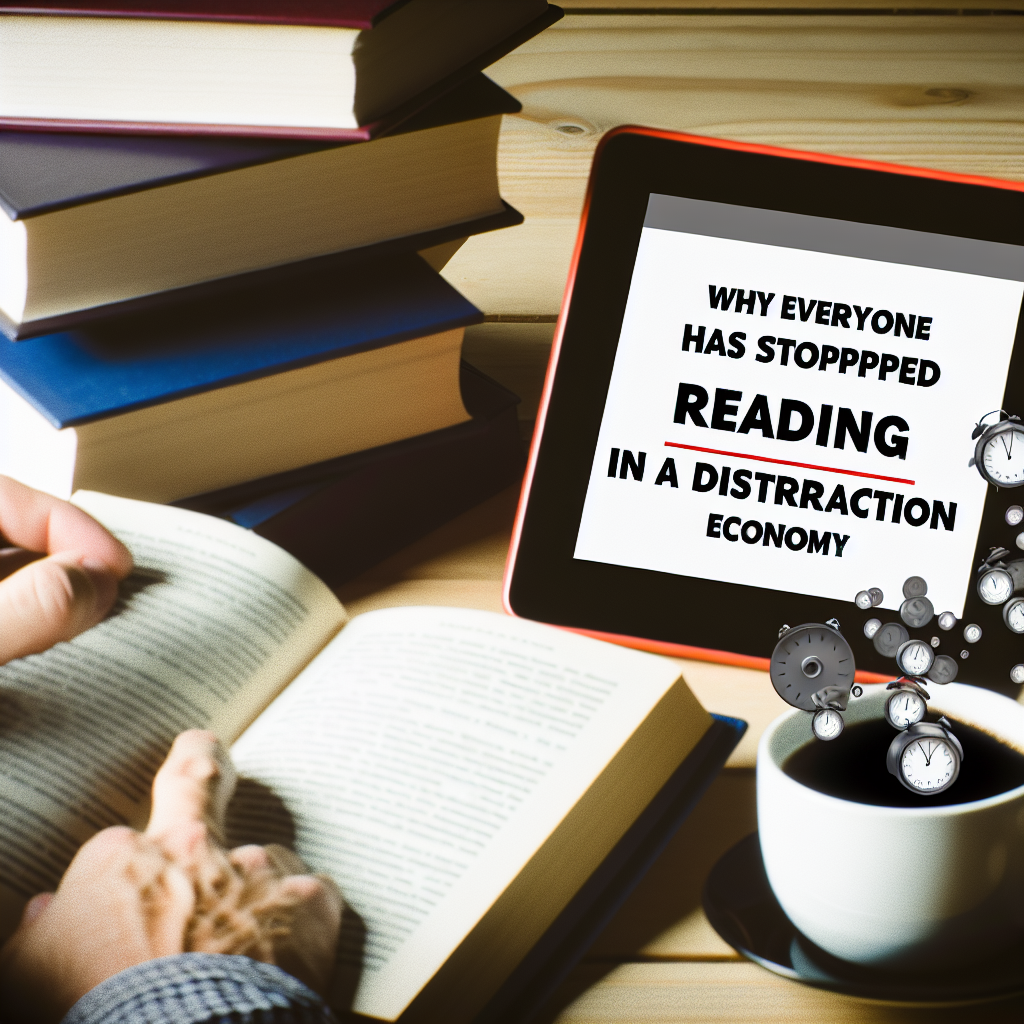In recent years, a surprising trend has emerged: fewer people are reading books, articles, or even engaging with written content online. This decline raises questions about changing habits, technology’s influence, and societal shifts. In this article, we will explore the key reasons behind why everyone seems to have stopped reading and what this means for our future.
The Distraction Economy and the Rise of Short-Form Content
One of the most significant factors contributing to the decline in reading is the *overwhelming influx of digital distractions*. With the advent of smartphones and social media, people are increasingly drawn to quick, easily digestible content such as videos, memes, and notifications. This shift has led to a *shortened attention span*, making extensive reading less appealing and harder to sustain.
Key aspects of this phenomenon include:
- Instant gratification: Consumers favor quick entertainment over deep engagement, reducing their patience for lengthy texts.
- Multitasking and information overload: The constant bombardment of information makes deep reading feel tedious and inefficient.
- Accessibility of multimedia: Visual and audio stimuli often outperform written content in capturing attention quickly, diverting focus from traditional reading.
Changing Cultural and Educational Dynamics
Beyond technological influences, cultural and educational shifts significantly impact reading habits. Modern education increasingly emphasizes *practical skills* and *digital literacy*, often at the expense of fostering a love for sustained reading. Simultaneously, societal values have shifted toward **instant results** and **productivity**, making reading seem less relevant or time-consuming.
This change can be seen in the way content is curated: editors prioritize headlines and summaries over in-depth articles, and social media platforms encourage quick engagement rather than comprehensive understanding. The result is a generation less inclined to invest time in lengthy texts, weakening critical thinking and deep comprehension skills.
Furthermore, the decline of physical books’ cultural significance and the dominance of internet-driven content have led to a perception that reading is less enjoyable or rewarding. This cultural shift also influences parental and educational priorities, reducing encouragement of sustained reading habits.
Conclusion
The decline in reading can be attributed to a combination of digital distraction, changing cultural values, and educational trends that favor quick, easily digestible content. As technology continues to evolve and influence our habits, it is essential to recognize these shifts and consider ways to reintroduce the joy and importance of reading into daily life. Rediscovering reading may be the key to fostering critical thinking and cultural literacy in an increasingly fast-paced world.
